The transition out of the military can be the hardest battle that you will ever fight. There isn’t a road map. There is no one-size-fits-all model to what in hell you are exactly supposed to do. You spend years being successful, gaining skills sets that the military tells you you need, attending Solider of the Month boards, stressing over promotion boards, racking up top tier evaluations and then….it stops.
The transition can be a daunting task, and as veterans, we aren’t accustomed to accept failure. We gained our chops in training, on the battlefield, leading or being led, and failing was not an option. Winning was our only reality. (Remember that every time you get to the end of a day and you feel like there is no hope in your transition.)
One tool that I have found incredibly helpful is to document the transition experience: What did you learn? What can you use to help others? The one thing that the military has taught us all—regardless of time of service, branch or rank—is that loyalty, trust and camaraderie can help us overcome any obstacle. Make sure you find a place and experience that gives you those same things.
For most transition veterans there is a black hole of what you should and shouldn’t do to communicate what it is exactly you have done.
- Do you put every position you have held on your resume?
- Do you talk about war?
- Does my Combat Life Savor training mean anything?
- Do I try to make my skills in the military of being a Infantry squad leader or fueler translate into a civilian position?
The answer? Well, there isn’t a blanket answer. There can’t be, and don’t let anyone tell you different. So, how do you get to those answers?
- Lead with your story. There is nothing more powerful, more unique and more impactful than your own, personal experience. You have to put aside pride and let the people around you, clearing you civilian avenue of approach, take lead. The reality is we aren’t subject matter experts in transition. We add value to the conversation and we seek mentorship but we do not know it all. Ask for help; it is there.
- Never lose the values that were bestowed upon you. Loyalty, honor, respect, duty—these are all things that make you who you are, and they don’t teach these in a classroom. These and the other values that you gained while you served will be one of the greatest points of value that you can add to an organization.
- Don’t let anyone tell you what you “should do.” When I was first making the leap, I was told I should look into law enforcement. “Be a cop” they told me, your Infantry background would do well there. Who knows? I t might have. It is an incredibly honorable career path. However, it was not what I was passionate about. Which brings me to….
- Find Your Passion. Once you do, do that. Very few—if any—people tell you that during the transition. It is so important that you do what you are passionate about, not just what your resume tells you that you are good at doing.
- Build Social Capital. There is nothing more powerful than your network. Take every opportunity you can to lead with your story and create incredibly meaningful connections. Never stop learning. You will be amazed at the doors that open when you invest in social capital.
The transition is not easy. Regardless of how many hiring events you go to, corporate pushes to hire veterans or resume workshops you attend, it wont be easy. It is going to take work. But you survived the military, so you have already done what very few Americans have accomplished. Leverage that. Follow your heart into something you are passionate about but don’t do it alone. There are incredible resources out there for you. Here at RECON we are honored to be included in those list of resources. In my new role I am excited about what we are doing and will continue to scale and do for veterans just like me.
Finally: Here is a challenge: reach out. Help me talk to as many Veterans as I can in 2018 by setting up a Google hangout. Let us change the pain of transition into a transition experience that you will not only want to invest in but come out with a passion, a purpose and a career.

